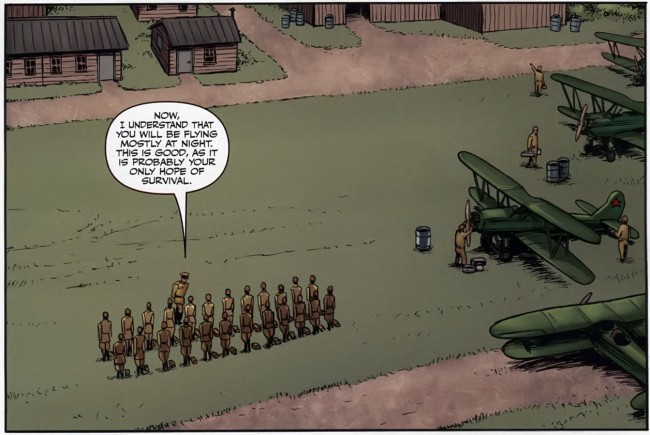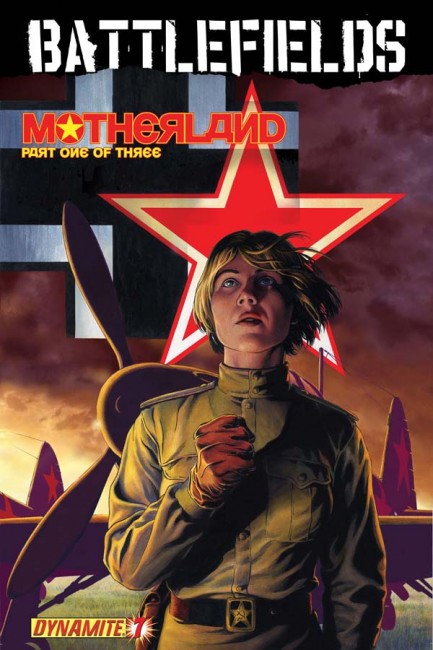
5 Series: Battlefields
July 21st, 2010 Posted by david brothers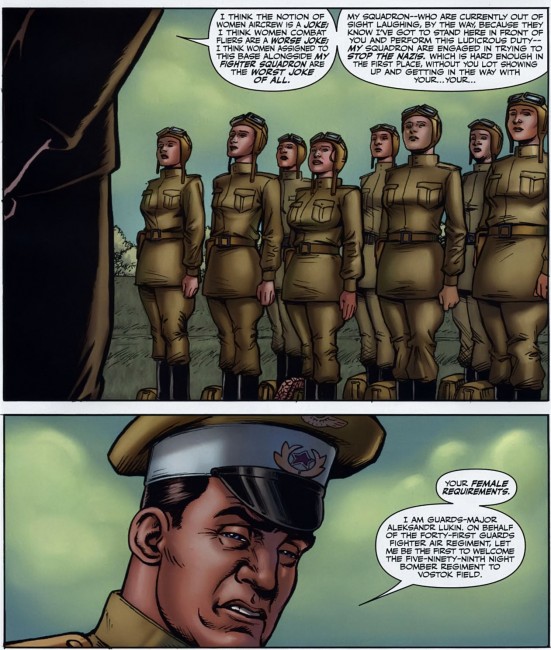
The best war stories are ones that focus on the people involved in the war, even if it is to the exclusion of any attention paid to the war itself. I think that was my problem with Joe Kubert’s Dong Xoai–it had characters, but they were practically blank slates. Dong Xoai was tilted too far onto the side of simply telling the story as it happened and it lacked heart. Garth Ennis has made the specific kind of war stories I like his stock in trade, from his work at Vertigo with War Stories
to his ongoing series of miniseries Battlefields at Dynamite.
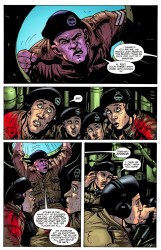
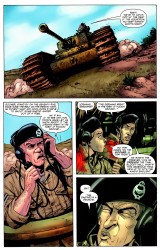
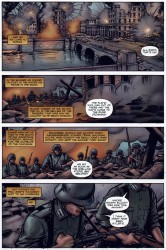
Battlefields has a very simple, but fresh, gimmick. Each arc is three issues long and focuses on one front and one group of characters, with one person in that group usually serving as a focal point. This format, sixty-six pages and out, is an effective one, allowing Ennis to drop you into a life and pull you out of it over the course of three issues. You get just enough to be interested, and then the story’s over and you’re on to the next one. The pace keeps you interested, kind of like how a huge part of Amazing Spider-Man appeal right now is sheer momentum.
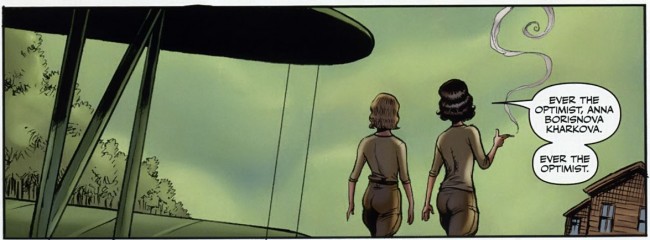
The variety isn’t what drew me to Battlefields (that was just the thought of Ennis doing more war stories), but it was kept me there. In the first series, you hip-hopped from Russia to Asia to Europe. The stories dealt with subjects like how to deal with war, healing from mental wounds, how people become hardened in the face of violence, or just how sometimes people were completely outclassed but still managed to make do. It shed light on actual stories by being based at least slightly on true stories, in the case of Night Witches, or simply took its cues from history and spun off into something else entirely.
The series varies in tone as well as content, of course. There’s a kind of black humor floating over Tankies, with a Corporal who talks funny and a crew who aren’t afraid to talk about it behind his back. You’ll chuckle at least a little bit at what they get up to. Night Witches is oppressive, taking place on one of the hardest fronts of the war and throwing innocents directly at the German army. There are jokes in there, but they’re the jokes of the doomed and damned. Nothing is pretty. Dear Billy is a melancholy love story. The war and action take a backseat to a woman and the man she’s fallen in love with. Happy Valley feels like a goofy getting-to-know you tale, where the curmudgeonly old vets have to welcome an eager and talented newcomer into the fold. The stories are always serious and treated with respect, of course, but there’s variety in how they’re told.
By and large, Battlefields is simple to a fault. The characters are invariably human, flawed in believable ways, struck by fear at inopportune times, and thrown into the thresher of World War II. No one comes out of the series the same way they entered it, and sometimes that means that people have to die. You aren’t reading about heroes or supermen. Not even close. These are, at best, decent people dealt a bad hand. There’s no flourish, no moment when someone jumps into the fray with two guns ablaze. There really aren’t even any of those motivational speeches that always seem to pop up in WWII tales.
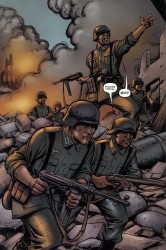
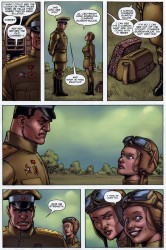
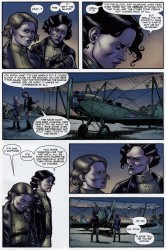
The art is varied, too. Russ Braun, Peter Snejbjerg, PJ Holden, and Carlos Ezquerra don’t look all that much alike as far as style goes, but they’re all talented artists. Braun and Ezquerra bring an ugly grit to the proceedings, rendering tanks and the Russian front as being appropriately sandpapery. Snejbjerg is great at drawing human beings, so a conversation-heavy volume like Dear Billy is the perfect book for him. Holden gets to draw dogfights, something notoriously tough to do in comics, but performs well.
The crew of artists is a boon to Battlefields. This is, in essence, anthology comic, a series of short stories being published under one banner. Each story, in addition to being set in diverse locales, has a unique visual style. The art complements the story, so that sad stories have sad art and brutal ones look the part. It makes sense, Each story is set apart from its brethren visually and tonally.
So, boiled down–simple stories about normal people during a war delivered in satisfying chunks.
Good comics.
